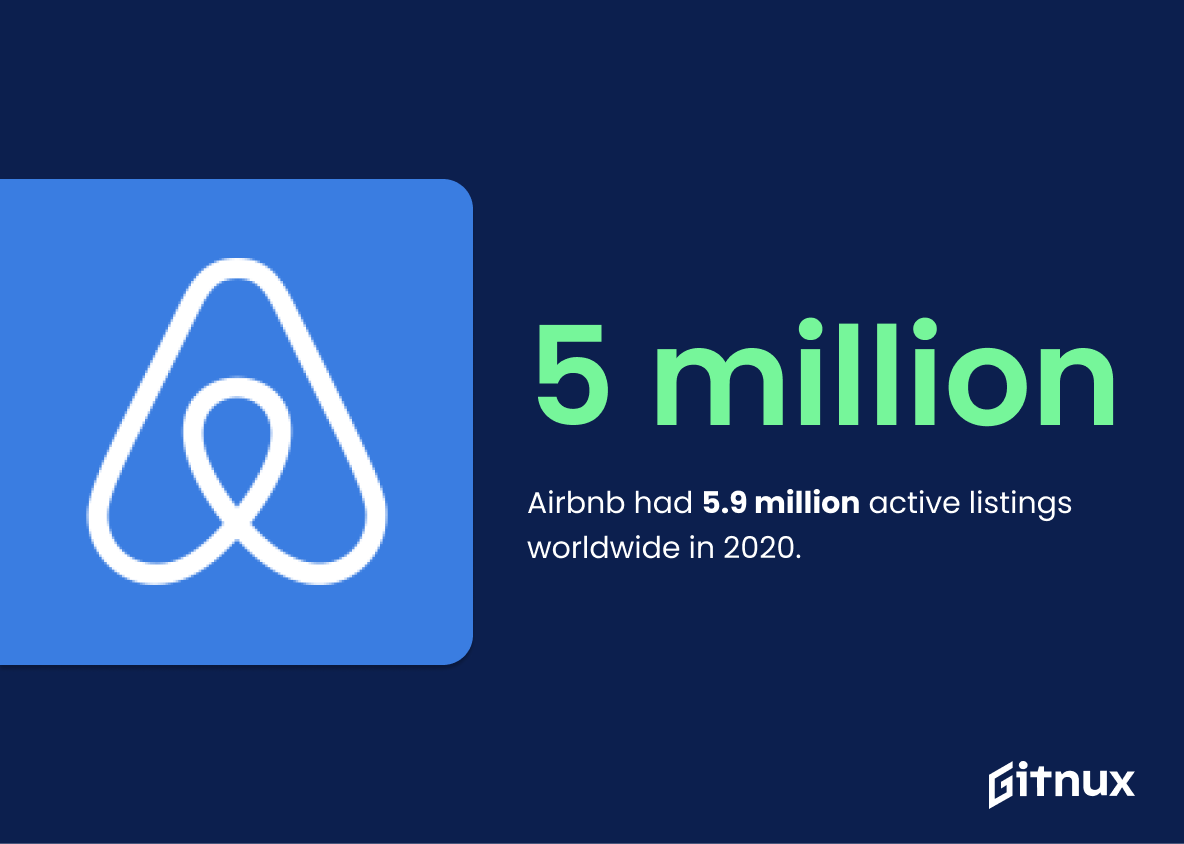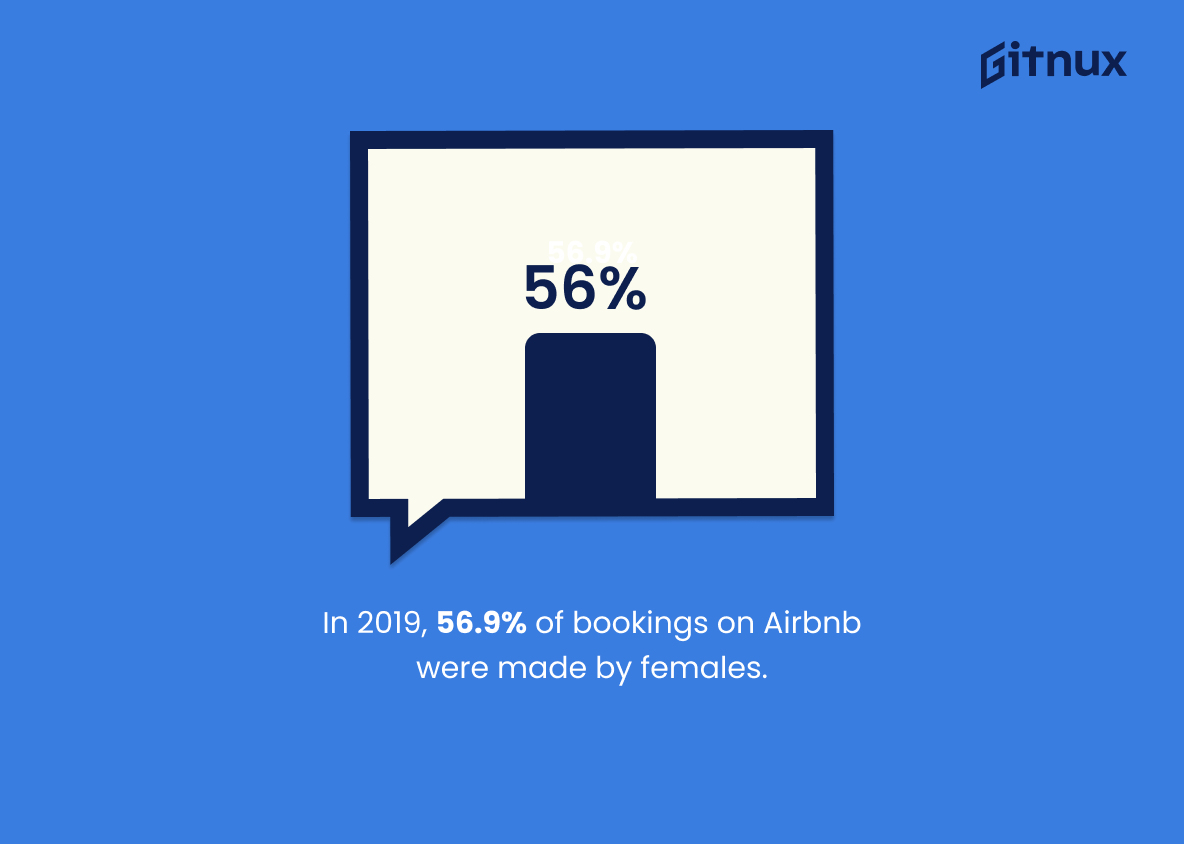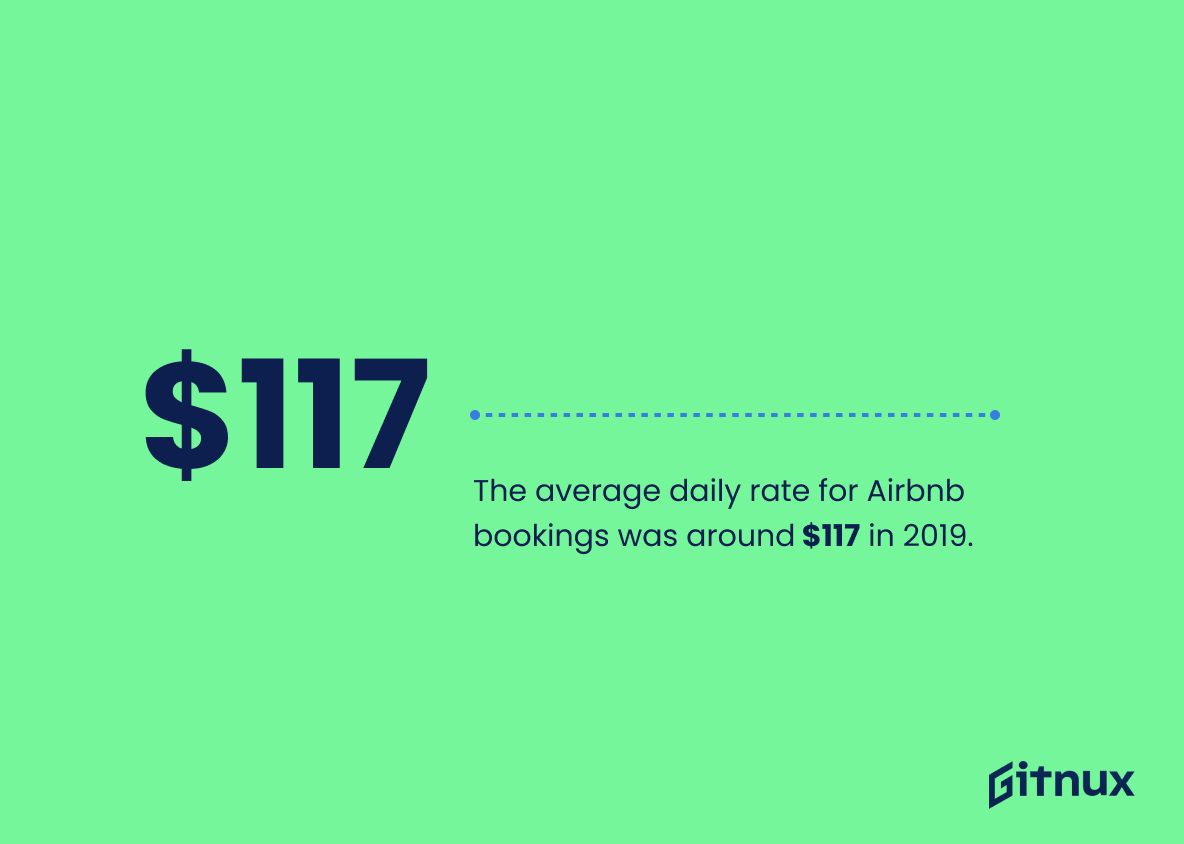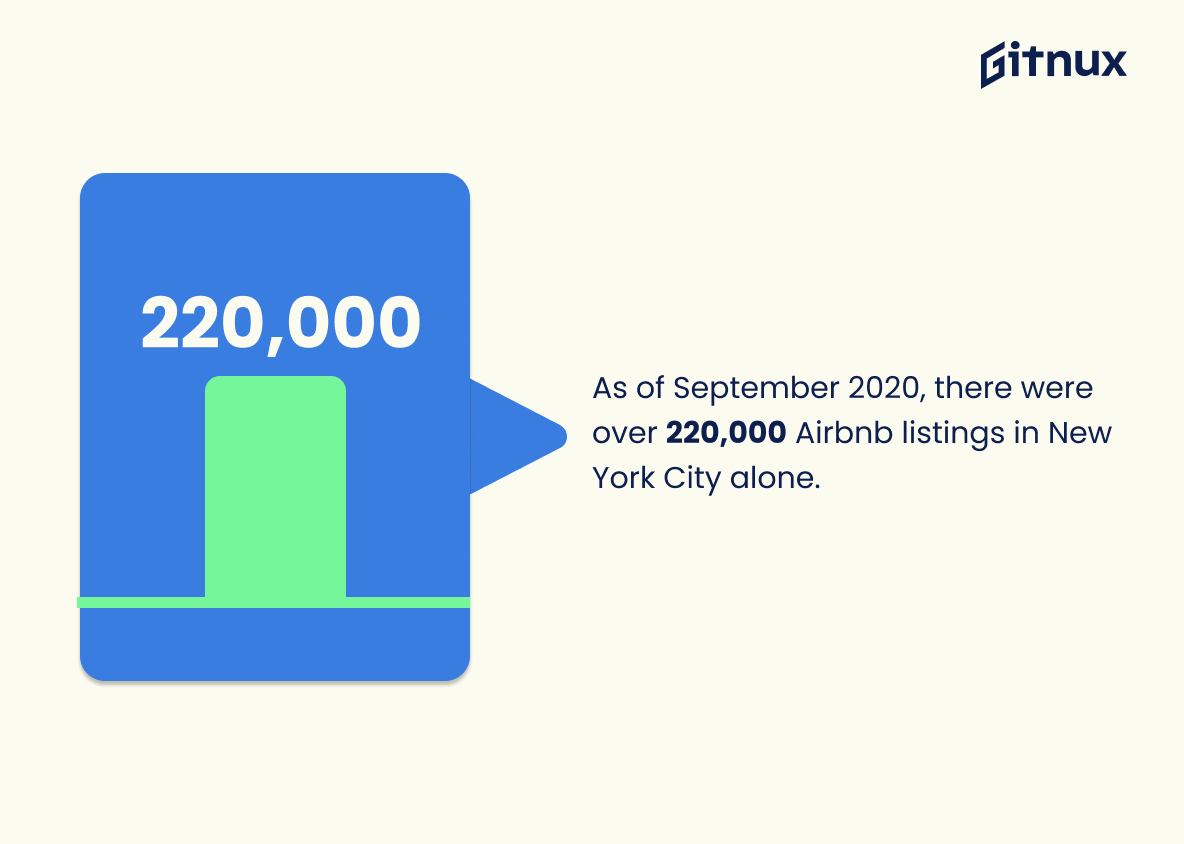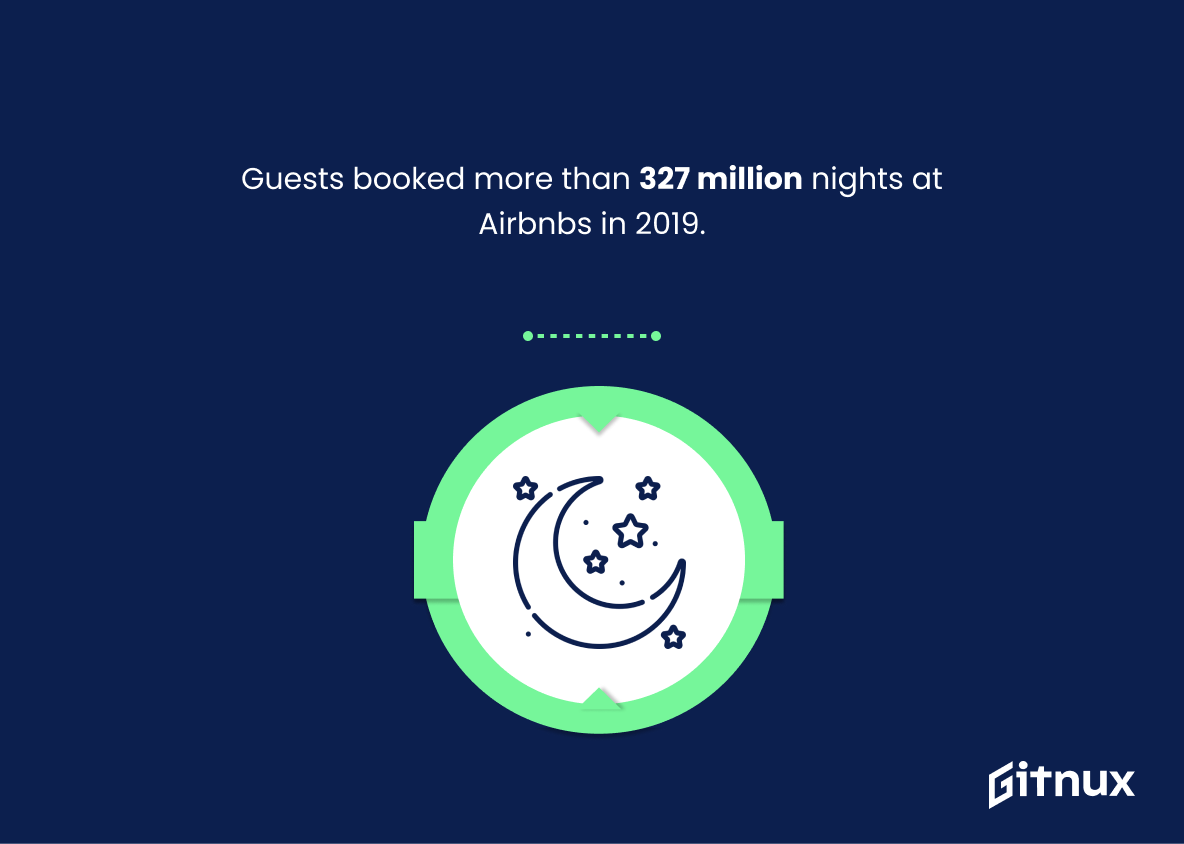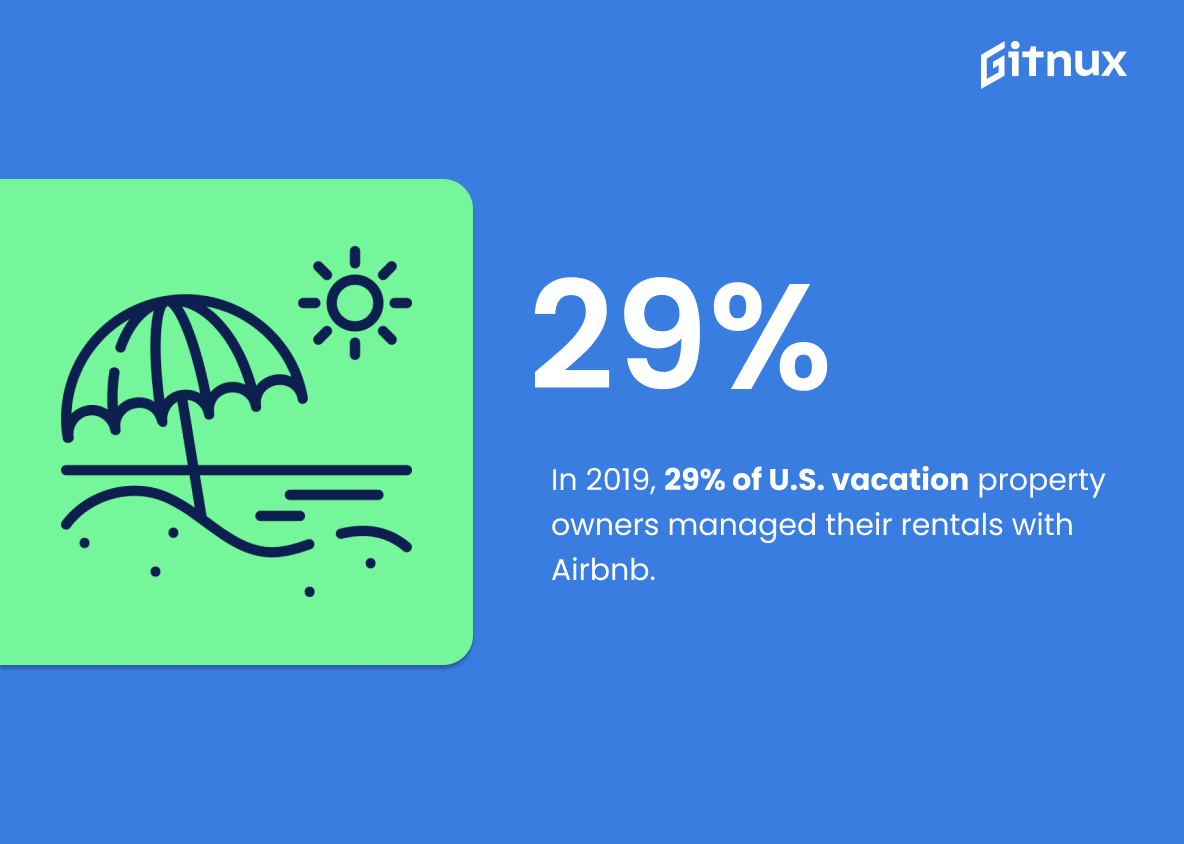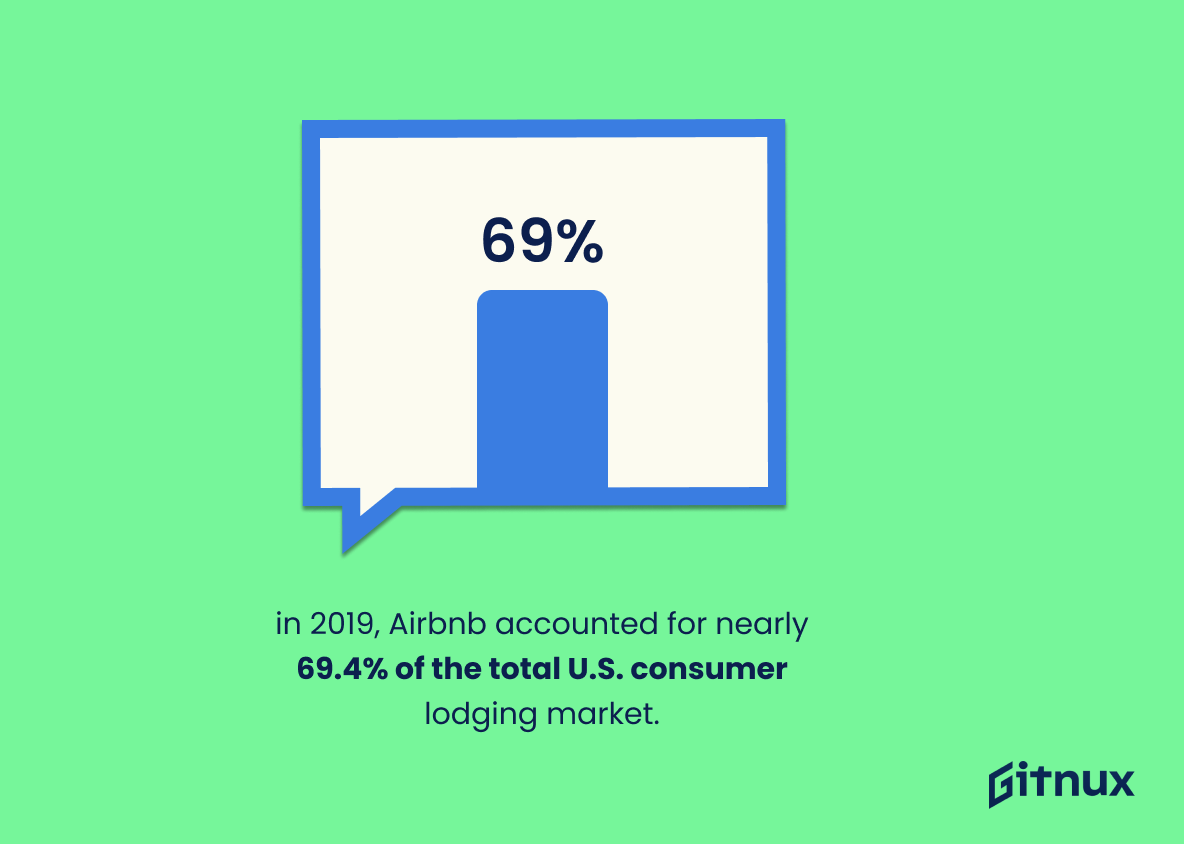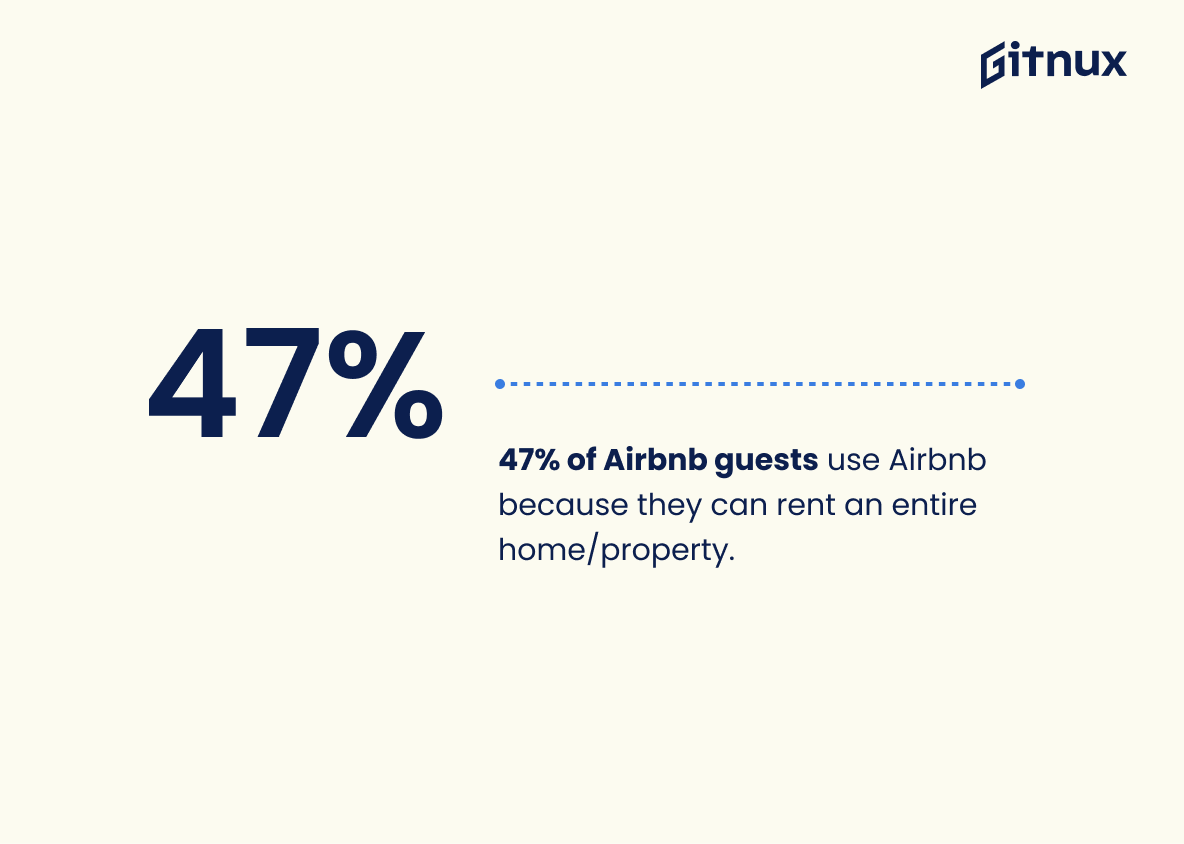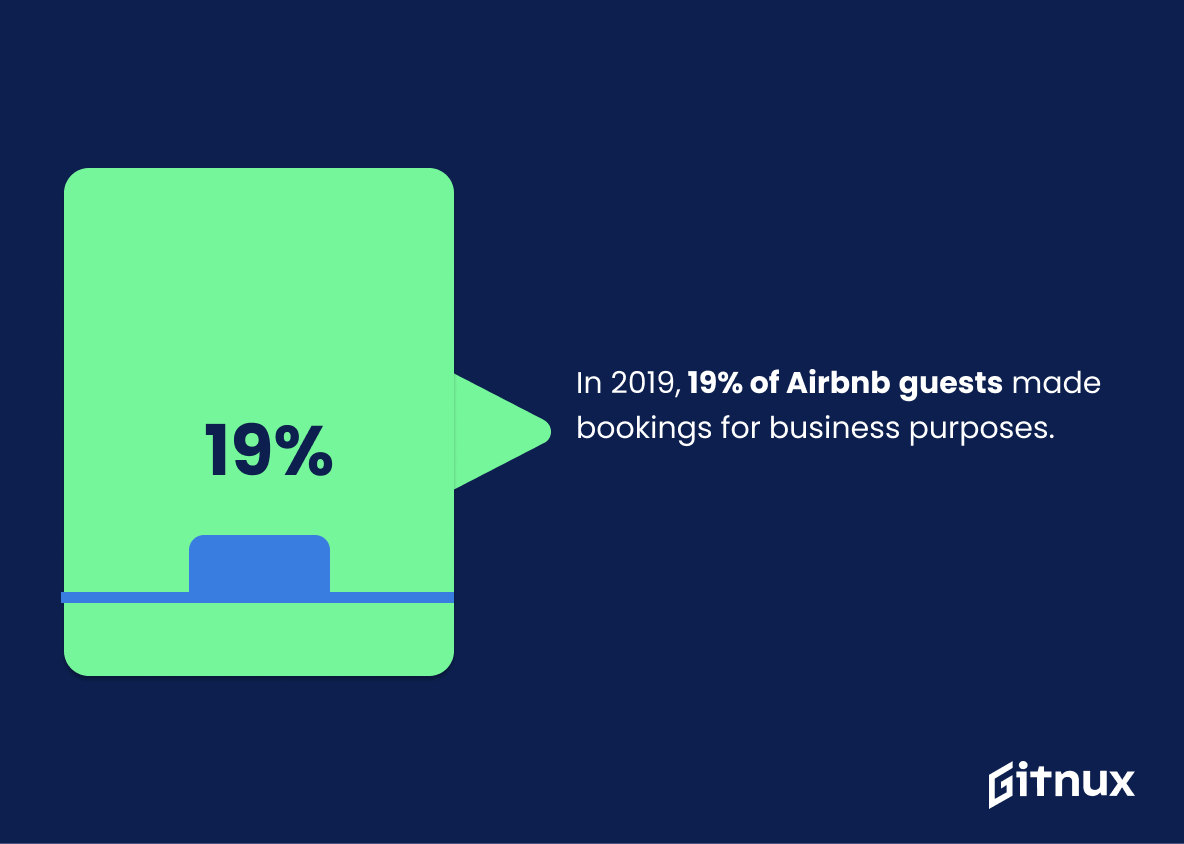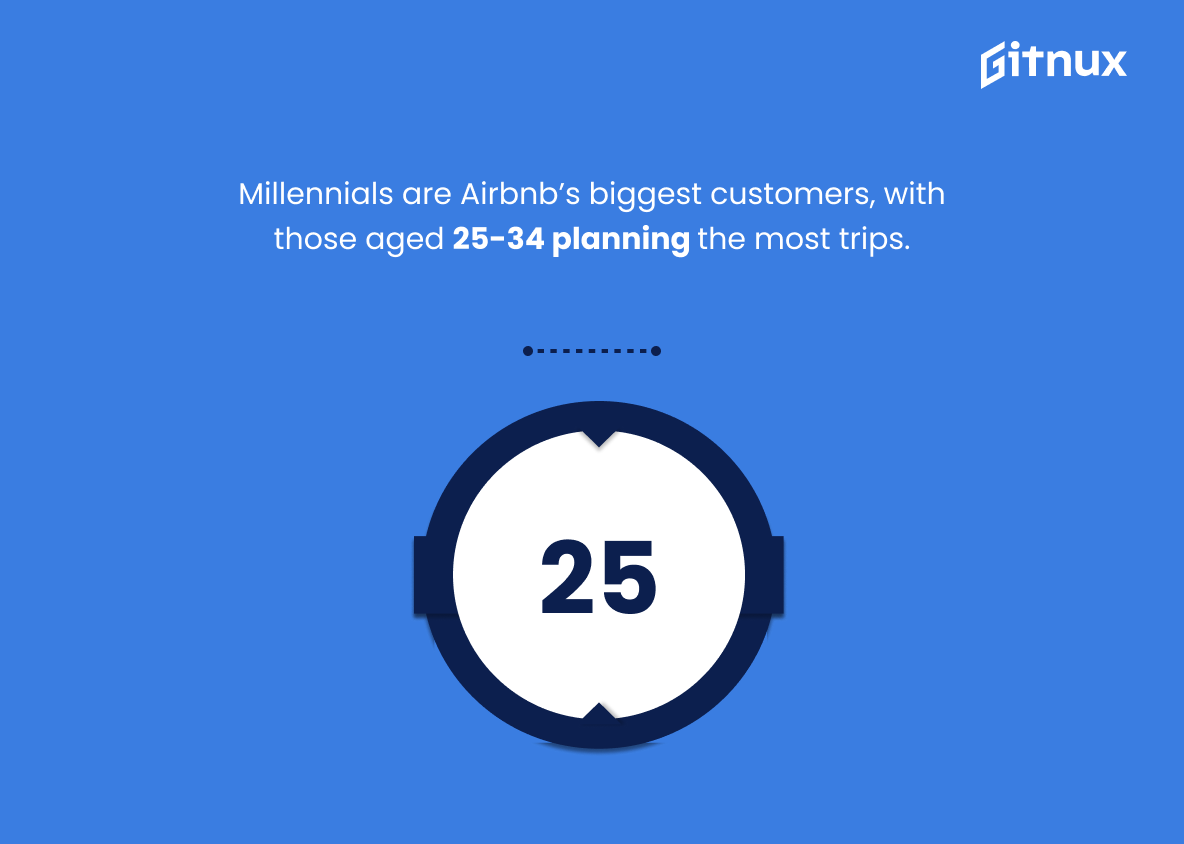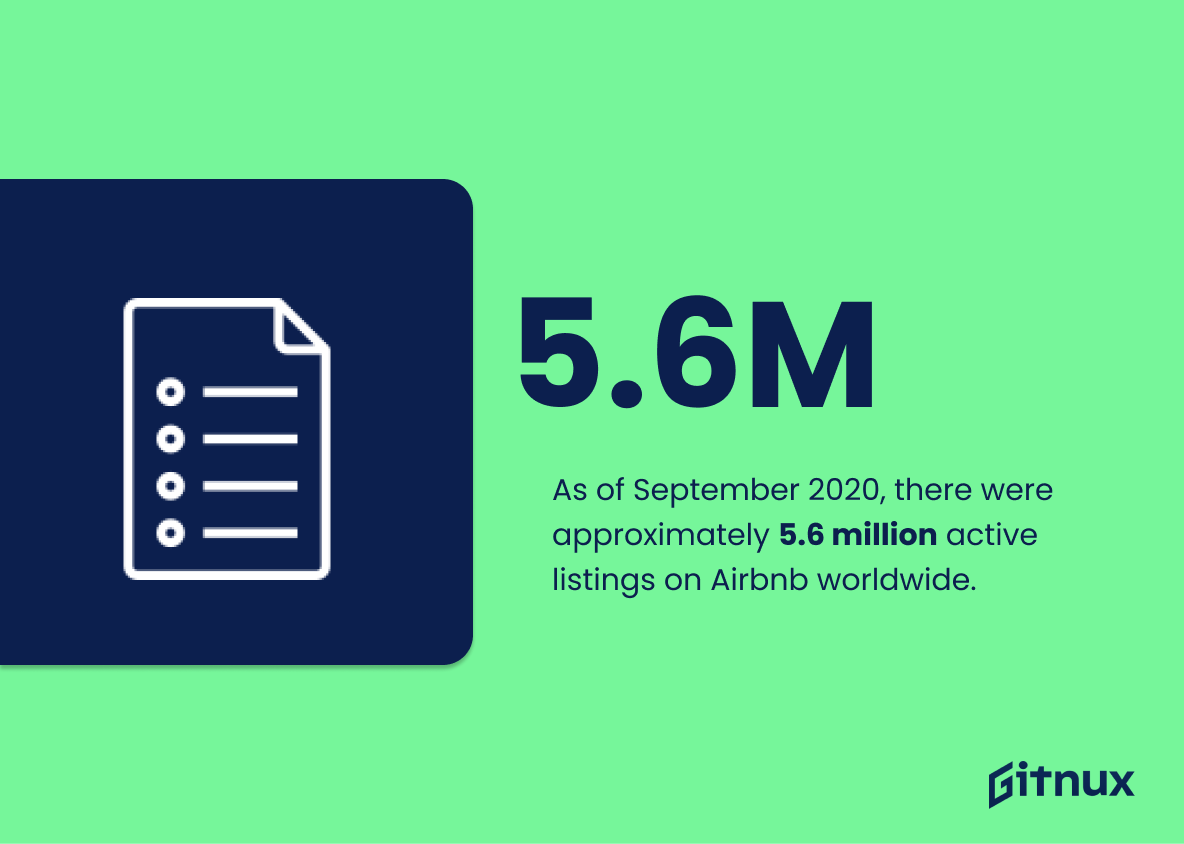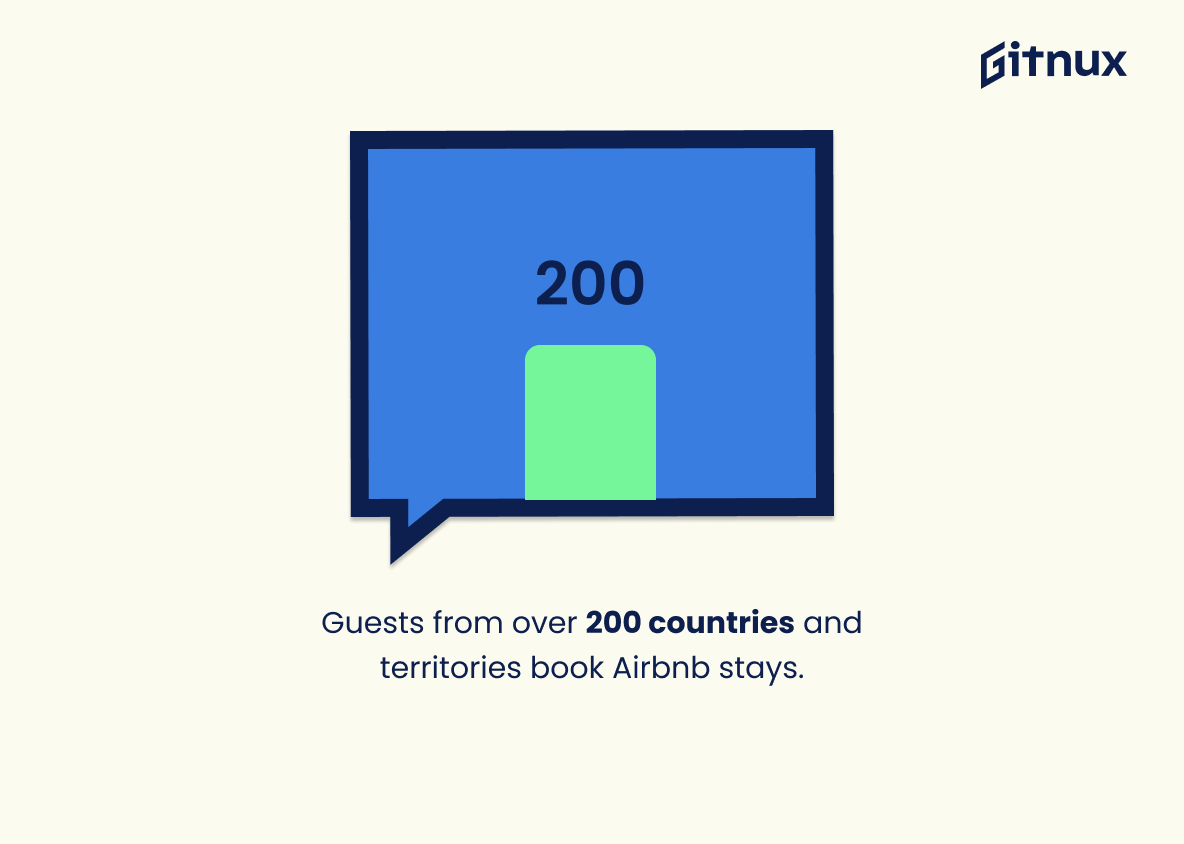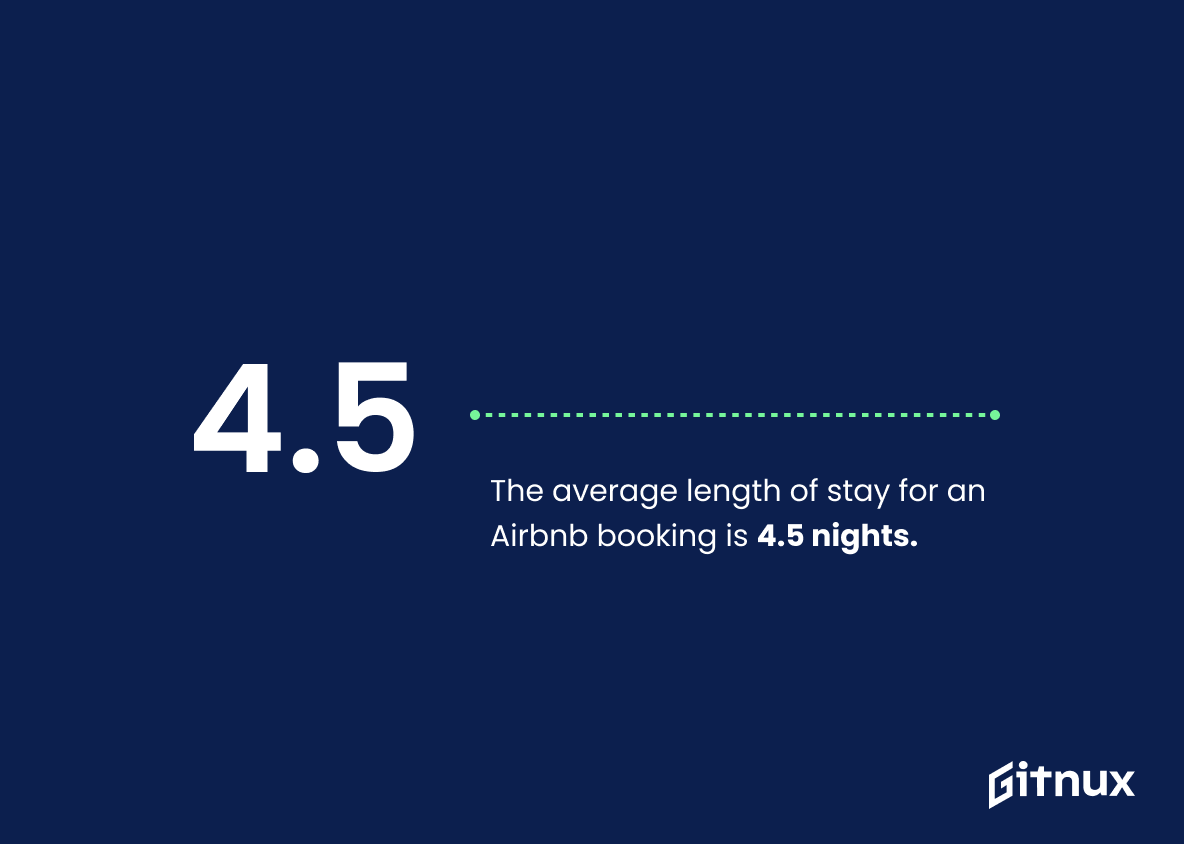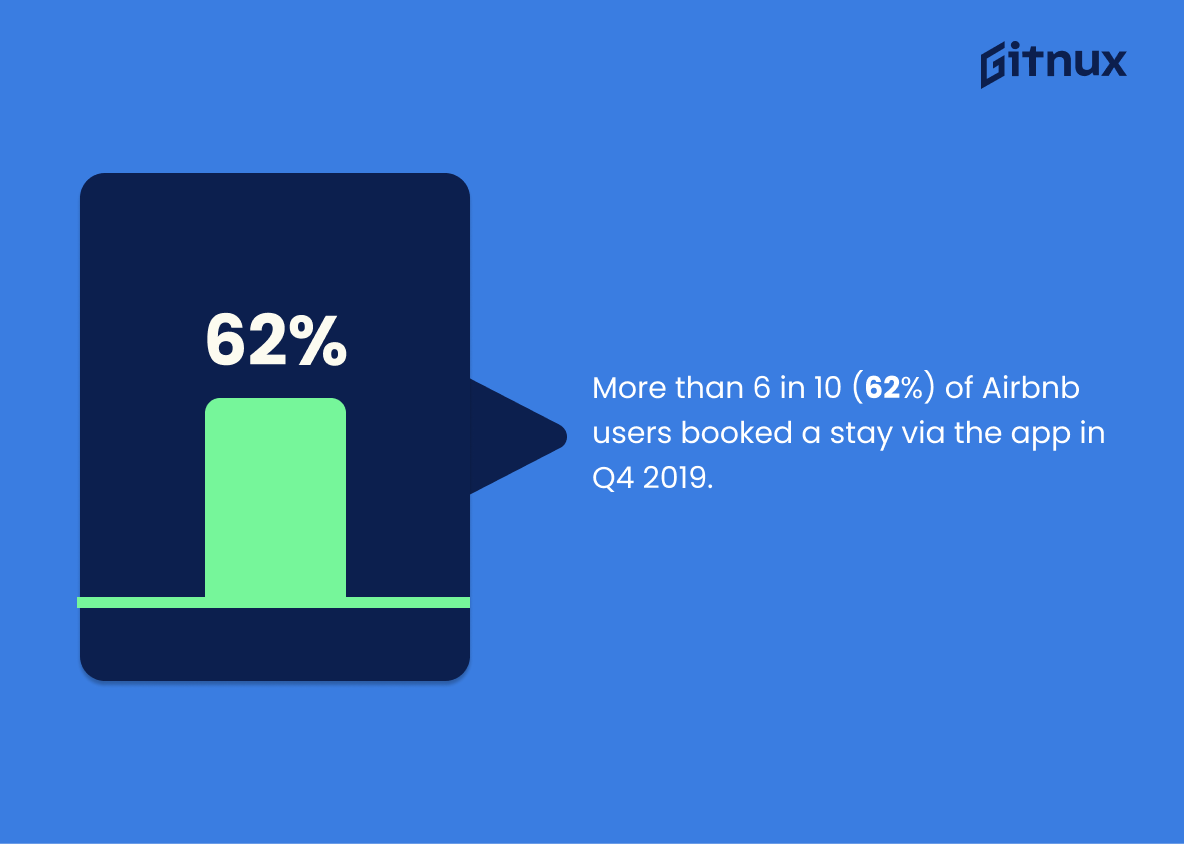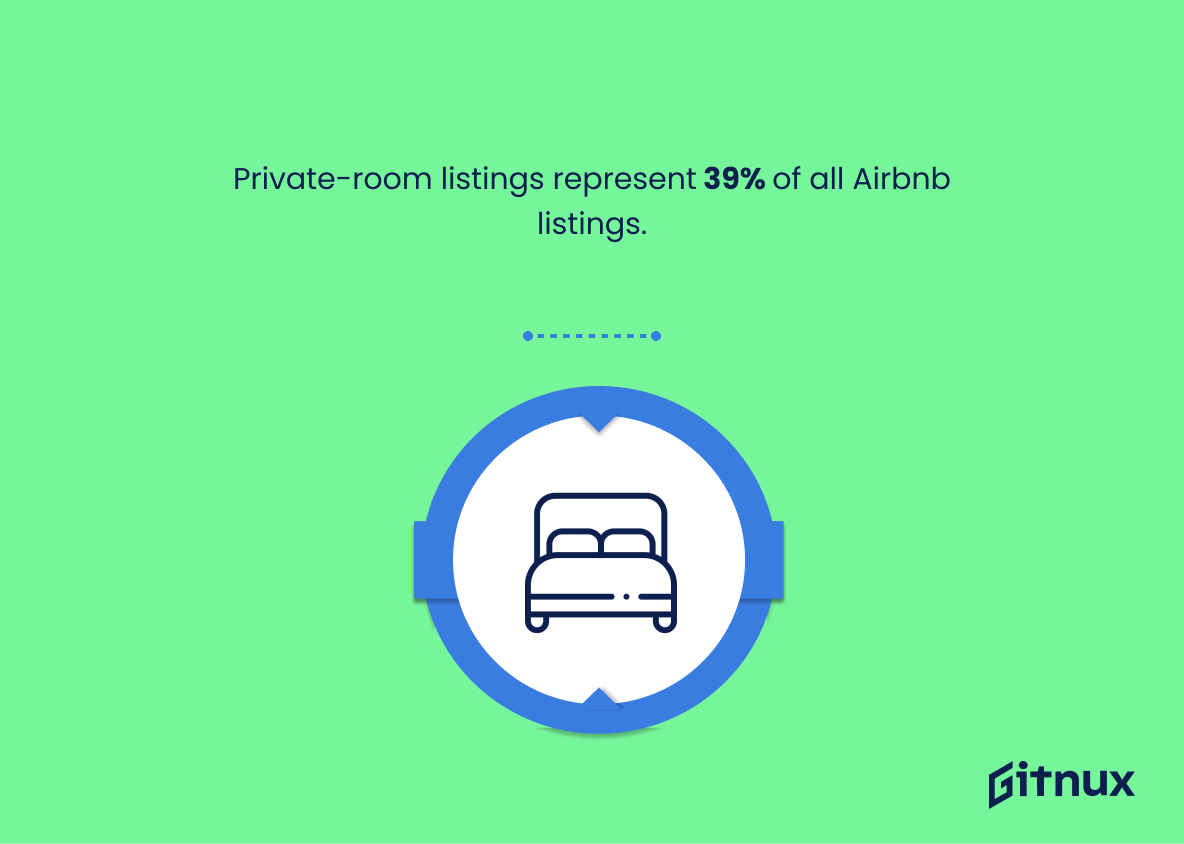Airbnb has revolutionized the way we travel, turning homes into hotels and making globe-trotting more accessible to everyone. Central to understanding this seismic shift in tourism and hospitality is the exploration of Airbnb booking statistics. These numbers not only reveal the phenomenal growth and popularity of the platform but also shed light on intriguing traveller patterns, influential factors, and market dynamics. In this blog post, we delve deep into the world of Airbnb booking statistics, providing data-driven insights that can inform both hosts and travellers, as well as those simply curious about the trends shaping this industry giant.
The Latest Airbnb Booking Statistics Unveiled
Airbnb had 5.9 million active listings worldwide in 2020.
Highlighting the fact that Airbnb had 5.9 million active listings worldwide in 2020, offers a remarkable testament to its vast global footprint. This figure alone portrays the enormous breadth and diversity of properties available on the platform, giving potential guests endless options when planning their accommodation. An Airbnb enthusiast peering through this lens will witness a stunning tapestry of unique homes, diverse locations and variety of experiences available in virtually every corner of the globe – an aspect that undeniably adds to the compelling allure of Airbnb bookings for many. Furthermore, for potential hosts, it illustrates an enormous market and highlights Airbnb’s effectiveness as a platform for visibility and revenue potential.
In 2019, 56.9% of bookings on Airbnb were made by females.
Highlighting the figure that female guests constituted over half of the Airbnb reservations in 2019 brings a fascinating insight into the travel behavior of this demographic. It underscores female travelers’ growing interest and confidence in using Airbnb, which could be attributed to the perceived safety, affordability, and unique experiences the platform provides. Delving into such a trend can spark valuable discussions on how this could impact future strategies of Airbnb and similar platforms in terms of design, safety measures, and marketing, which would specifically cater to the preferences of female clientele.
The average daily rate for Airbnb bookings was around $117 in 2019.
Unraveling the significance of the $117 average daily rate affirms Airbnb’s position in the convenience-driven, budget-conscious travel sector. In a comparison arena, it furnishes a pricing benchmark for both hosts and travelers, enabling them to gauge the competitiveness of listings or set expectations for travel costs, respectively. In essence, this data point illustrates the economic dynamics and behaviors within the Airbnb marketplace, serving as a compelling addition to a broader discussion on Airbnb booking statistics. Think of it as Airbnb’s fiscal pulse check, delivering insights into its health, evolution, and impact on global rentals market.
As of September 2020, there were over 220,000 Airbnb listings in New York City alone.
With the hustle and bustle of New York City accommodating over 220,000 Airbnb listings as of September 2020, one can truly comprehend the massive echelon it holds within the realm of Airbnb booking statistics. This numeral spectacle is a beacon showcasing Airbnb’s significant imprint on the urban accommodation landscape. Not only does it underscore the voracious consumer demand but also paints the canvas with the striking popularity and the radiant growth trajectory of Airbnb. Each listing represents a story, a reference point in the growing compendium of guest experiences, host reliability and profound influence on the world’s single largest traveling community. Just imagine, over 220,000 hosts marking their presence, humming a tune in the symphony of this shared economy revolution.
Guests booked more than 327 million nights at Airbnbs in 2019.
Highlighting the enormous figure of 327 million nights booked at Airbnbs in 2019 perfectly illustrates the immense popularity and widespread acceptance of Airbnb as a dominating figure in the hospitality industry. This statistic represents a profound shift in preference of travelers globally, trading traditional accommodations for more personalized and affordable options offered by Airbnb. In essence, it unravels the power of Airbnb’s business model in transforming the dynamic of tourism and travel industry worldwide, thereby posing as a pivotal element within a discussion on Airbnb booking statistics.
In 2019, 29% of U.S. vacation property owners managed their rentals with Airbnb.
Delving into the heart of Airbnb Booking Statistics, the 2019 insight revealing that 29% of U.S. vacation property owners chose to manage their rentals with Airbnb exudes substantial importance. This fractional representation provides an objective measure of the platform’s traction and success in captivating property owners. After all, these individuals constitute a vital part of the Airbnb ecosystem. Their choice to employ Airbnb services paints a radiant portrait of the platform’s reputation, indicative not only of its advantageous features but also of the prevailing trust it enjoys in the competitive space of vacation rentals. Indeed, without such trust and cooperation from property owners, Airbnb’s functioning as a peer-to-peer rental marketplace would be compromised. This fascinating statistic breathes life into our understanding of the dynamics and popularity of Airbnb in the vacation rental marketplace scenario.
In 2019, Airbnb accounted for nearly 69.4% of the total U.S. consumer lodging market.
This captivating figure illuminates Airbnb’s dominant position in the U.S. consumer lodging market for 2019, with a commanding 69.4% share. It punctuates the pronounced preference of consumers for more personalized, unique and budget-friendly accommodation options. Illustrating the successful business model, this figure not only marks the seismic shift in consumer preferences from traditional hotels to home-sharing platforms, but also underlines the soaring popularity and growth potential of Airbnb. Hence, anyone looking into Airbnb booking trends should bear this substantial figure in mind, as it underscores the importance and prominence of Airbnb in the rapidly transforming landscape of the lodging industry.
47% of Airbnb guests use Airbnb because they can rent an entire home/property
Delving into the heart of Airbnb booking statistics and unravelling the motivation of its guests’ decisions, we find a key implication. Just under half, or 47%, of Airbnb dwellers opt for this platform due to its unique offer of renting an entire home or property. This captivating figure is not just a number, it verbalizes the silent preference of nearly half of Airbnb’s clientele who desire not just a home away from home, but a space that’s just theirs and completely private. This draws a distinct differentiation line between Airbnb and traditional hotel rooms, giving a powerful depiction of Airbnb’s competitive edge in the market. Hence, understanding this percentage can enable a strategic approach in catering better to customer preferences, influencing marketing initiatives and driving the evolution of future services.
In 2019, 19% of Airbnb guests made bookings for business purposes.
Delving into the intriguing world of Airbnb booking statistics, it’s fascinating to consider one data point that reveals the much broader narrative: in 2019, roughly a fifth of Airbnb users—19% to be precise—made bookings with all things career-oriented in mind, rather than leisure. Without a doubt, this figure takes center stage, reframing how we think about Airbnb bookings.
Highlighting this percentage unbundles the stereotype of Airbnb primarily serving the vacationing community. It elaborates on how Airbnb is potentially an untapped, corporate retreat platform or an alternative to traditional business travel accommodation. This information is vital as it may inspire home renters to re-evaluate the presentation of their listings, with a refined focus on targeting business travelers. Furthermore, Airbnb itself could exploit this statistic to build and expand its user base, adjusting policies and marketing strategies to make itself more appealing for business-oriented uses. Ultimately, these nuggets of quantifiable data contribute to a fuller understanding of how Airbnb fits into the modern traveling landscape.
Millennials are Airbnb’s biggest customers, with those aged 25-34 planning the most trips.
In the vibrant symphony of Airbnb booking statistics, the pulsating beat of the millennial generation cannot be overlooked. As the spotlight shines on those aged 25-34, we observe a pattern—this demographic is indeed planning the most Airbnb trips. With millennials wearing the crown as Airbnb’s largest consumer group, this nugget of information quivers with potential for both Airbnb hosts and marketing strategists.
To dissect, the millennial penchant for experiences over material possessions is widely recognized. Their passion for travel, adventure, and authenticity sees them gravitate towards Airbnb’s unique and personalized accommodation options. Hence, being aware of this trend not only helps Airbnb strengthen its marketing efforts targeting this segment but also empowers hosts to cater their services to the tastes and demands of this demographic.
Furthermore, the credit-conscious millennial generation finds the affordability of Airbnb listings an attractive alternative to traditional hotels. This fact could offer a game plan for Airbnb in competitive pricing strategies.
Therefore, this crescendo of millennials leading the charge in Airbnb bookings isn’t a mere statistic—it’s a testament to the evolving trajectory of the hospitality and tourism industry. So pay heed, for those housing the millennials today might just be steering the course of tomorrow’s tourism sector.
As of September 2020, there were approximately 5.6 million active listings on Airbnb worldwide.
Delving into the globe-spanning expanse of Airbnb, the staggering count of approximately 5.6 million active listings as of September 2020 operates as the backbone of our narrative. This number not only sketches the impressive breadth and depth of the platform, but also indicates the vast volume of choice available to consumers. Distinguishing Airbnb from its counterparts, it unveils an important story of immense growth and potential for disrupted traditional hospitality models. This aspect, glittering with the sparkle of opportunity, can shape consumers’ booking patterns and preference, thereby illuminating key insights for our discussion on Airbnb booking statistics.
Guests from over 200 countries and territories book Airbnb stays.
Showcasing the diversity of Airbnb’s customer base, the fact that guests hail from more than 200 countries and territories around the globe serves as a testament to Airbnb’s universal appeal. This dazzling geographic range is a shout-out to Airbnb’s strategic success in capturing a wide spectrum of clientele cut across various cultures, languages and travel preferences. Unveiling this spectacular footprint not only validates Airbnb’s omnipresence in the global lodging market but also illustrates its potential and adaptability in meeting unique guest’s needs, making it an unmissable jewel in any analysis of Airbnb booking statistics.
The average length of stay for an Airbnb booking is 4.5 nights.
Delving into the heart of Airbnb booking tendencies, it’s fascinating to point out that guests typically reside for an intriguing band of 4.5 nights per booking. Shedding light on this figure not only gives prospective hosts a realistic expectation of booking intervals, but it also serves as a critical reference for seasonal preparations and property management. Moreover, potential guests have a benchmark that guides their decision-making process, all while offering the opportunity to optimize their stays to fully immerse themselves into their travel experience. What an eye-opening insight. This average duration is akin to the pulse of Airbnb’s thriving ecosystem, a fundamental trademark of its unique home-sharing ambiance. A statistic as such undoubtedly transforms a blog post into a mirrored reflection of Airbnb’s vibrant community, enriching readers with a deeper understanding of booking habits and behaviors.
More than 6 in 10 (62%) of Airbnb users booked a stay via the app in Q4 2019.
Highlighting that a robust 62% of Airbnb users orchestrated their accommodations using the app during the final quarter of 2019 delivers a clear message about the prevalent usage of mobile technology in making hospitality choices. It sketches a vivid picture not only of the trend set by Airbnb in the marketplace, but also of the mounting reliance of its users on technology. It points toward a booming digital era where the supremacy of mobile apps appears unstoppable. Its implication resonates even stronger considering the fact that this isn’t just an overview of the state of affairs but a reflection of a deliberate shift in consumer habits worldwide.
Private-room listings represent 39% of all Airbnb listings.
The pulsating truth that private-room listings account for 39% of all Airbnb listings astonishes one with intriguing insights about consumer preferences and booking trends in the vibrant Airbnb market. This fascinating numerical evidence exhibits a compelling side of the hosted accommodations market, underpinning the preference for private rooms among the masses. It adds a layer of understanding to the mosaic of Airbnb’s demand dynamics, helping to paint a more comprehensive and detailed picture of the hosting landscape. From an analytical perspective, this figure provides a clear pointer on market behavior, and can guide hosts in aligning their offerings with prevalent trends. Meanwhile, on the guest’s side, it reassures individuals and group travelers alike that they can find the privacy often craved for in vacations with almost two out of every five listings being a private room.
Conclusion
In essence, Airbnb has revolutionized the way we travel by offering not just a place to stay but experiences that enrich our travels. Whether as a guest looking for unique accommodations or as a host wanting to earn extra income, the platform caters to varying needs. Through the concise analysis of Airbnb booking statistics in this blog, we observed clear growing trends indicating Airbnb’s growing popularity and influence in the travel industry. The data showcases its incredible reach, diversity, and acceptance globally, as well as the promising opportunities it holds for hosts. As we forge ahead, it’s clear that Airbnb continues to shape travel norms and expectations, reinforcing its position as an indispensable player in the global travel and tourism industry.
References
0. – https://www.news.airbnb.com
1. – https://www.ipropertymanagement.com
2. – https://www.builtformars.com
3. – https://www.lodgify.com
4. – https://www.www.airdna.co
5. – https://www.www.businessofapps.com
6. – https://www.www.guesty.com
7. – https://www.www.statista.com
8. – https://www.www.airbnb.com
9. – https://www.42matters.com
